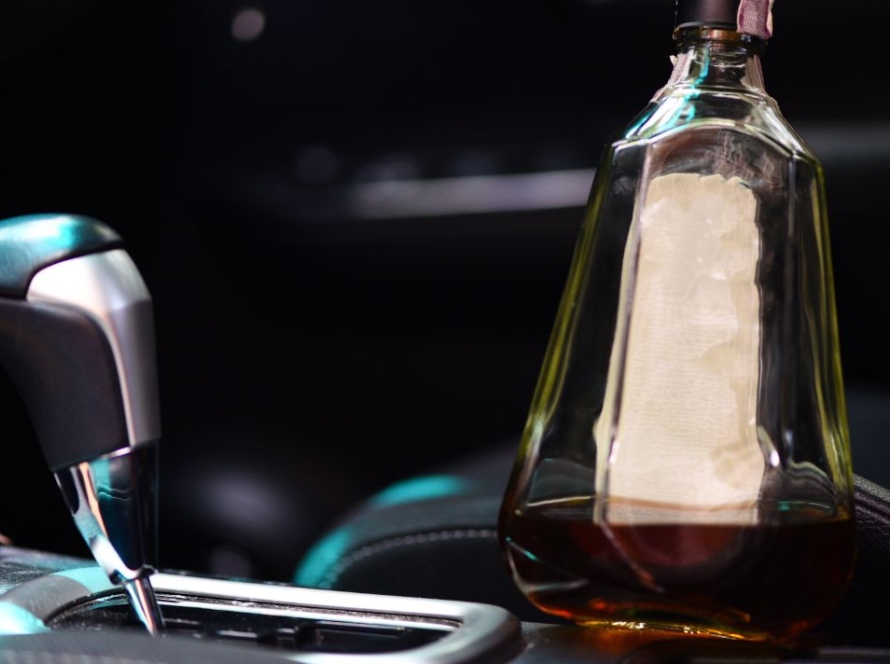When a driver sees traffic slowing down and flashing police lights ahead, they might think there’s an accident. But as they get closer, they realize it’s a DUI checkpoint. If the driver had a beer with dinner, they might not know whether to admit it or hope the officer doesn’t notice any alcohol.
It’s normal to feel nervous when dealing with police on the road. However, being nervous or having some other innocent reason should not lead to a drunk driving arrest in Virginia. If you were arrested at a sobriety checkpoint, talk to your Virginia DUI defense lawyer about your rights.
DUI Checkpoints in Virginia
Sobriety checkpoints, also known as DUI checkpoints or roadblocks, are set up to catch drivers who might be impaired or breaking other traffic laws. These checkpoints are meant to be random and temporary, where police can legally ask for your license and registration. However, police are often looking for more than just a valid license or insurance. They are on the lookout for signs of alcohol or drug impairment, which could lead to further investigation on the spot.
Sobriety checkpoints often result in multiple arrests for DUIs, driving with a suspended license, or individuals with outstanding warrants. According to law enforcement, one of the main purposes of a DUI checkpoint is to act as a deterrent. When police set up a highly visible roadblock, it can discourage drivers from drinking and driving to avoid being stopped randomly.
Are Sobriety Checkpoints Legal?
Sobriety checkpoints have been challenged by the U.S. Supreme Court. However, in the case of Michigan Dept. of State Police v. Sitz, the Supreme Court decided that sobriety checkpoints meet the constitutional standard for a “reasonable search and seizure.” This decision was based on the government’s strong interest in stopping drunk driving, and sobriety checkpoints are seen as a reasonable way to support that interest. A sobriety checkpoint is not considered a police stop but rather an “administrative procedure.”
Sobriety checkpoints are usually allowed in Virginia. However, these checkpoints must be set up following specific rules to protect the safety and rights of drivers. If the police do not follow the rules for sobriety checkpoints in Virginia, your criminal defense lawyer may be able to challenge the legality of the checkpoint.
Guidelines for Sobriety Checkpoints
Virginia allows sobriety checkpoints, but they must follow certain rules, including:
- Proper use of judgment.
- Senior police officers created and oversaw a roadblock plan.
- All officers at the checkpoint must be properly trained.
- Safe conditions.
- Reasonable duration of stops.
- Effective checkpoint setup.
Can I Avoid a DUI Checkpoint?
When drivers see a checkpoint, they might wonder if they should go through it or try to avoid it. In general, if a driver can safely and legally avoid the checkpoint without giving the police a reason to stop them, they are allowed to do so. There is no law requiring a driver to go through a roadblock, so avoiding one is not illegal. For instance, if there is an intersection before the checkpoint and you can safely and legally turn to avoid it, this is usually permitted.
However, some drivers make an illegal U-turn, cross double-yellow lines, or speed away from the checkpoint. These traffic violations can give the police a valid reason to stop the driver.
What Do Police Look For at a DUI Checkpoint?
At a DUI checkpoint, the police usually ask for the driver’s license and registration, but they are also looking for signs of impairment. These include:
- The smell of alcohol from the driver
- The smell of marijuana inside the vehicle
- Visible alcohol or drug items inside the vehicle
- Conflicting statements from the driver or passengers
- Bloodshot eyes and slurred speech
- A driver admits to drinking alcohol
Traffic Investigation at a DUI Checkpoint
When the police officer suspects the driver may be impaired or involved in illegal activity, they will direct the driver to pull over to the side of the checkpoint. At this point, the police may try to gather more evidence of the driver’s impairment.
During a roadside investigation, the police may ask the driver to perform field sobriety tests, such as the “walk-and-turn test,” “one-leg-stand test,” and eye tests. These tests are not required, and there is no automatic penalty for refusing them, as they are often inaccurate.
The police may also ask the driver to take a roadside breath test. This test is also not mandatory and can be an inaccurate measure of the driver’s blood alcohol content (BAC).
Challenging a DUI Arrest from a Sobriety Checkpoint
If a driver is arrested at a sobriety checkpoint in Virginia, there are several legal defenses available to fight a drunk driving conviction. This can include challenging the police search of the driver or vehicle or questioning the officer’s reason for turning the checkpoint into a traffic stop.
Police at checkpoints look for signs of drug or alcohol use. However, these signs can have innocent causes. For example, bloodshot eyes can result from lack of sleep or allergies. Difficulty hearing the officer’s questions can be due to a cold. Nervousness at being stopped can make the police suspect drug use.
Medical conditions, illnesses, non-impairing medications, or physical limitations can all explain many signs of drug or alcohol use. Talk to your Virginia DUI attorney about what might have caused the police to suspect drugs or alcohol if you were not impaired when arrested.
Virginia DUI Defense Lawyer
Drivers can be arrested at DUI checkpoints even if their BAC is below the legal limit. With all the penalties for a drunk driving arrest, it is important to have someone on your side to fight the charges. Speak with an experienced Virginia DUI defense lawyer about your case and how to keep your record clean. Contact the KGO Law Firm today for a free consultation.



